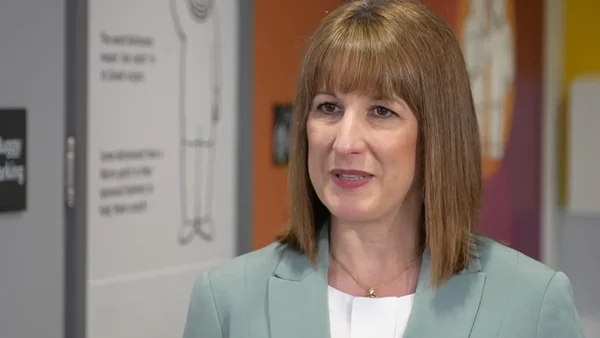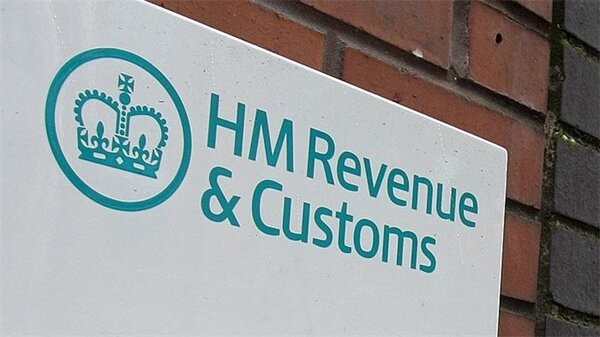Let’s Break This Down Together...
Working with international clients as a UK freelancer? Then you’ve probably wondered: Do I really have to pay tax twice on the same income?
Double taxation is a common concern for freelancers earning abroad, and without the right knowledge, it can cost you more than it should. From tax treaties and foreign tax credits to figuring out your residency status, it can all feel like a legal puzzle.
But don’t worry! This guide walks you through how double taxation works, how to claim relief, and how to avoid being taxed more than once, so you can focus on growing your business globally without stressing about the tax bill. Let’s go!
Introduction to Freelancer Tax
Freelancing across borders can be rewarding, but it also brings a unique set of tax responsibilities. As a UK freelancer, you’re required to pay UK tax on your worldwide income, not just what you earn from UK clients.
This means that any foreign income you receive, whether from business profits, employment income, or rental income, must be reported on your Self Assessment tax return.
Double taxation agreements between the UK and other countries are designed to prevent you from paying tax twice on the same income. These agreements outline which country has the right to tax specific types of income and often provide relief if you’ve already paid tax abroad.
Your UK tax residency status is crucial here: if you’re considered a UK tax resident, you’ll need to pay UK income tax on your worldwide income, and your tax liability will be assessed accordingly.
Understanding your tax residency and the relevant double taxation agreements can help you avoid unnecessary tax bills and ensure you’re fully compliant with both UK and foreign tax laws.
Keeping up with your assessment tax return and knowing when you need to pay UK tax is essential for staying on the right side of HMRC.

The Double Taxation Challenge for UK Freelancers
Working internationally as a UK freelancer opens exciting opportunities, but it can also lead to a tax headache known as double taxation.
Without proper knowledge, you could end up paying tax twice on the same income – once in the country where you earned it, and again in the UK.
Understanding tax treaties and relief options is essential for protecting your hard-earned money from unnecessary taxation. A double taxation agreement is a formal treaty between the UK and another country designed to prevent you from being taxed twice on the same income.
Your tax residency status directly impacts your liability and determines which rules apply to your situation, as double taxation treaties allocate taxing rights between the UK and the relevant overseas country.
What Is Double Taxation for UK Freelancers?
Double taxation happens when you pay tax on the same income in two different countries – typically the UK and wherever your client is based. The tax paid in the other country is often referred to as overseas tax.
As a freelancer, this often occurs when a foreign client withholds tax from your payment, and then you are required to pay taxes in both the overseas country and the UK on that same money.
The UK has tax agreements (called tax treaties) with over 130 countries specifically designed to prevent double taxation. These treaties are intended to prevent this unfair double taxation.
These treaties set out rules for which country has the primary right to tax different types of income, helping freelancers avoid paying twice.
If you work with clients in countries without UK tax treaties, you face a higher risk of double taxation – but there are still ways to reduce the impact. Tax relief may be available through unilateral relief, foreign tax credits, or other mechanisms.

UK Tax Residency Rules: The Foundation of Your Tax Status
Your UK tax status is determined by the Statutory Residence Test, which looks at factors like how many days you spend in the UK and your ties here. Under this test, you are considered 'resident for tax purposes' if you meet certain criteria, which affects your tax obligations on worldwide income.
If you’re a UK tax resident, HMRC generally wants to tax your worldwide income – regardless of where you earned it. If you remain tax resident while working abroad, you must still report your global income to HMRC and may be subject to UK taxes.
The famous 183-day rule is a starting point: if you’re in the UK for 183 days or more in a tax year, you’re automatically a UK tax resident, establishing your UK residency for that period.
The UK tax year runs from 6 April to 5 April, and being present in the UK for a complete UK tax year can affect your residency status and tax liabilities, including eligibility for split-year treatment.
Even spending fewer days in the UK doesn’t automatically make you non-resident – having a home, family or work here can still make you UK tax resident. Your tax residence is influenced by these ties, and maintaining significant connections to the UK can result in ongoing UK tax obligations.
I once mistakenly thought spending four months in Spain meant I wasn’t liable for UK tax that year. HMRC quickly corrected my understanding, as my family and main home remained in Britain.
Taxation of Foreign Income
If you’re a UK resident earning income from abroad, you’ll need to include that foreign income on your Self Assessment tax return.
The UK tax system requires you to pay UK income tax on your worldwide income, but double taxation agreements can help ensure you don’t pay tax twice on the same income.
When you’ve already paid tax on your foreign income in another country, you may be eligible for foreign tax credit relief.
This allows you to offset the foreign tax paid against your UK tax liability, reducing the amount of UK tax you need to pay on that income. The relief is usually limited to the lower of the foreign tax paid or the UK tax due on the same income.
It’s important to familiarise yourself with the tax rules in both the UK and the country where your foreign income is earned. This helps you comply with all relevant regulations and avoid paying tax twice.
Make sure to keep detailed records of any foreign tax paid, as you’ll need this information when completing your self assessment tax return and claiming any available tax credits.

National Insurance and Contributions for International Freelancers
Working as a freelancer abroad doesn’t always mean you can stop paying National Insurance contributions (NICs) in the UK.
Whether you need to continue paying NICs depends on your UK tax residency status and the country where you’re working. Some countries have social security agreements with the UK, which can help you avoid paying social security contributions in both countries at the same time.
Understanding your tax residency status is key to determining your National Insurance obligations. If you remain a UK tax resident, you may still need to pay UK NICs to protect your entitlement to benefits like the state pension.
Social security agreements can sometimes allow you to pay contributions in just one country, depending on your circumstances.
To stay compliant with UK tax laws, keep accurate records of your National Insurance contributions and your tax residency status.
This will help you avoid penalties and ensure you receive the benefits you’re entitled to in the future. If you’re unsure about your obligations, it’s wise to seek professional advice to clarify your UK tax position and avoid any surprises.
How to Claim Double Taxation Relief
Foreign Tax Credit Relief is the most common method UK freelancers use to avoid double taxation – it allows you to offset foreign taxes paid against your UK tax bill. This relief applies to income from self employment as well as other sources.
To claim this relief, keep detailed records of foreign tax paid, including tax certificates or withholding statements from your clients, and documentation of payments received into your UK bank account.
On your Self Assessment tax return, complete the ‘Foreign’ section and provide details of your overseas income, including any income from a UK employer, and the tax already paid.
The amount of relief you can claim is typically limited to the lower of the foreign tax paid or the UK tax due on that same income.
Some tax treaties offer exemption methods instead, where certain types of income are only taxable in one country – potentially saving you from dealing with two tax authorities.
For complex double taxation relief claims, it is advisable to consult a tax adviser.

Practical Tips to Avoid Double Taxation
Keep meticulous records of where you physically were when performing work – your location can affect which tax treaties apply. It's also important to understand your overseas working arrangement, as this can impact your tax residence status and obligations.
Before taking on international clients, research the specific tax treaty between the UK and their country to understand potential withholding taxes.
Consider setting up separate bank accounts for different currency payments to make tracking international income easier.
Timing can matter – in some cases, delaying or bringing forward income into a different tax year might reduce your overall tax burden.
Also, check if there is a social security agreement between the UK and the country where you work, as this determines where you should pay social security contributions and helps avoid double payments.
Always get professional advice for complex situations, especially if you work with clients in multiple countries or spend significant time working abroad, to ensure you pay social security contributions in the correct country.
VAT and International Freelancing
UK freelancers need to consider VAT when working with international clients – the rules differ depending on whether clients are businesses or consumers.
For B2B services with EU clients, the reverse charge mechanism often applies, meaning you don't charge VAT on your invoices.
Digital services sold to consumers abroad might require you to register for VAT in other countries or use the UK's VAT MOSS system.
Keep in mind that Brexit has changed some VAT rules for UK freelancers working with EU clients – what worked before might not work now.
Final Thoughts
Navigating double taxation as a UK freelancer requires understanding your tax residency status and knowing which tax treaties apply to your situation.
With proper planning and good record-keeping, you can minimise or even eliminate double taxation on your international income.
Don't be afraid to seek professional advice – the cost of an accountant familiar with international tax matters can quickly pay for itself in tax savings.
By taking a proactive approach to international tax planning, you can confidently grow your freelance business globally without the fear of paying tax twice.











